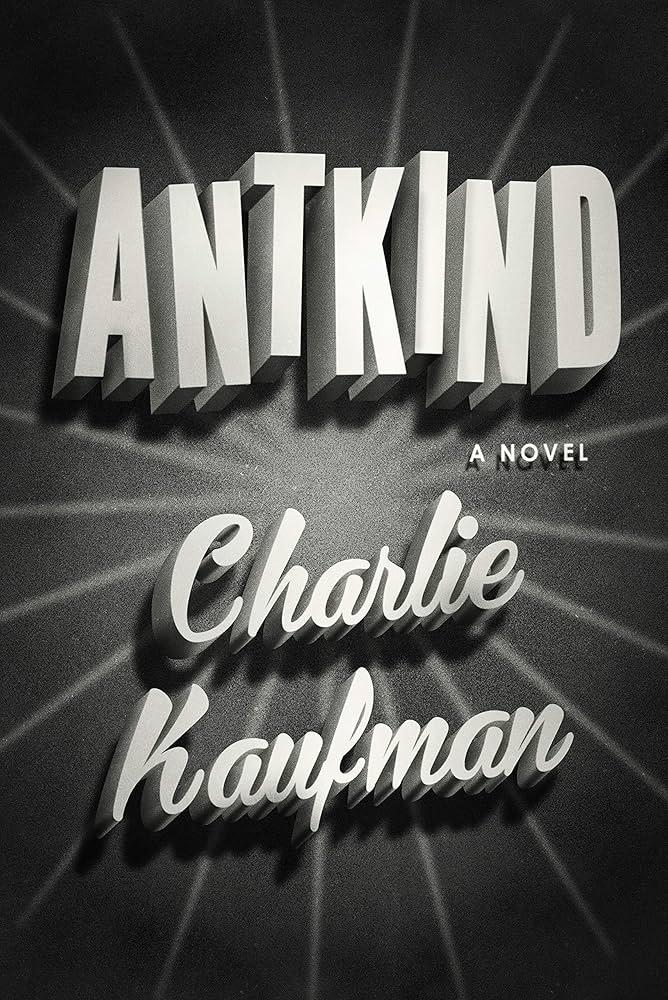
(Aug 23rd, 2024)
Charlie Kaufman, screenwriter, director, and magician of post-modern life, has written a novel. One is tempted, at almost every step they take within the shifting world of Antkind, to compare it to Kaufman’s many filmic works, among them 2004’s Eternal Sunshine of the Spotless Mind and 1999’s Being John Malkovich, both of which can be held up as keystones for understanding some the maverick style choices within this here book. While his creative style is easy to imagine, it’s actually much harder to holistically define than one might imagine. Is he detached, or does he actually feel some sympathy for his characters? As a codex for his career, Antkind tells us that he’s a bit of both: able to create absurdly unrelatable situations and/or characters and then somehow, wildly, circle back to some deeper humanity within them. That the novel is such an explanatory and fresh view into the author’s mind is at once it’s blessing and it’s curse, however. Antkind, for it’s prodigious length (my edition is 720 pages), can draw a little bit too much from the internality of it’s principle character, B. Rosenberger, to the detriment of some kind of story. Indeed, the whole narrative through it feels as though Kaufman is taking the medium of the novel for a joyride, in all the ways that it contrasts with him for the writing of a film. You can get a lot more out of someone’s reactions, and their perverted thoughts, without having to put anything physical into motion, and you also (perhaps gratefully) don’t have a budget or a runtime to abide by. Thus, there are certainly sections that could’ve been trimmed down, and also many-legged tangle of themes/ideas that could have done likewise (although this isn’t necessarily a criticism with just Antkind—Kaufman has been known to scatter-shoot a lot of grand ideas with his works, for better and for worse.) All this, however, is not to say that Kaufman seems unpracticed in the novelistic form; in fact, he demonstrates a great understanding of written dialogue and humor that few seasoned novelists and satirists could measure up to, and delivers a sure-footed ending to what can seem such a harebrained narrative. He also—as is clear with some of his oblique references in-text—reads a lot, and draws his influence from some of the guiding epic-satirists (re: Pynchon, Roth, Vonnegut, Lethem). He could certainly be accused of shearing to close to some of them, but given that this is a debut, and that it draws even more from his own previous work in film (including the many hilarious references to himself), I’ll cut him some slack. Especially like Roth, he seems to have an acute sense of social irony, and mines a lot of laughs from just how desperately and fearfully B. tries to appear an ally to the marginalized/oppressed, without even an ounce of meaningful action taken on his part. It comes off as an almost scarily accurate portrait of how much self-flagellation people will undergo just to appear more socially enlightened. And indeed, B.’s entire psychology is the stage for the novel’s dramedy. He’s sexually dissatisfied, self-aggrandizing, obsessed with inclusive pronouns and behavior whilst oppressing his homosexuality and Jewishness, and not to mention the ego of it all. If it weren’t so desperately hilarious, it would be exhausting to read. But then we get to read President Donald Trunk’s (sic) thoughts, and B. appears mild in comparison. If you want to laugh, read this book.
6.5/10
